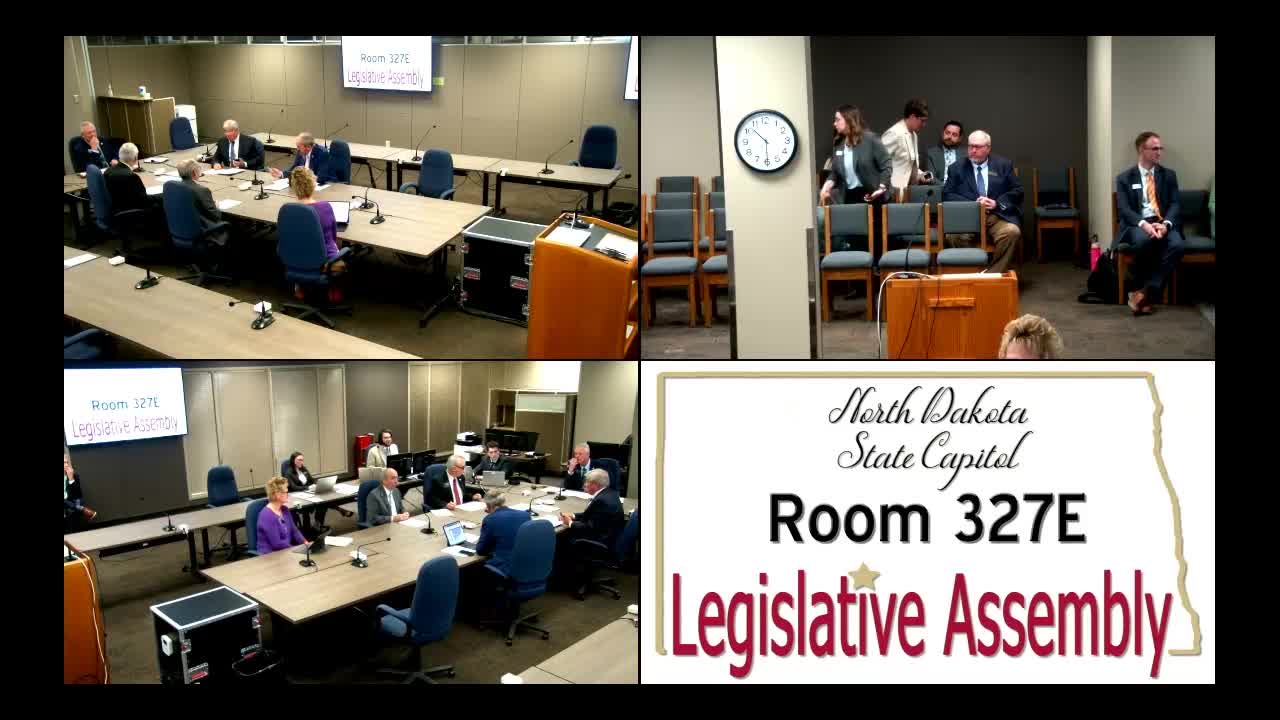Conference committee on House Bill 1279 debates production tax-credit language and revenue destination
Get AI-powered insights, summaries, and transcripts
Subscribe
Summary
Members of the conference committee on House Bill 1279 discussed a proposed amendment that would phase in higher taxes on certain energy production over five years and whether revenue should be deposited in the state Legacy Fund or the general fund, Chairman Hedlund said.
Members of the conference committee on House Bill 1279 discussed a proposed amendment that would phase in higher taxes on certain energy production over five years and whether revenue should be deposited in the state Legacy Fund or the general fund, Chairman Hedlund said.
The amendment under discussion would raise the tax on affected production by 10% in year one, 20% in year two, 30% in year three, 40% in year four and 65% in year five, Representative Haggart said. Haggart added that "the percentage of the obligations, they're fixed, but the revenues would would vary." He also said Legislative Council was preparing draft language.
The discussion included a contingency tied to the federal production tax credit. "And if that's fully repealed, the tax would revert back to the full 85% rate," Representative Haggart said, proposing to add that as an amendment.
Representative Porter said he supported directing revenue to the Legacy Fund but warned that a federal change to the production tax credit would not necessarily remove subsidies for existing systems. "I'm okay with the revenue going into the legacy fund. I do have concerns about the additional provision, only from the standpoint that...Congress can only take away the production tax credit for the new, items," Porter said, adding that systems already bidding into MISO and SPP "would remain subsidized, in this 5 year window." Porter urged caution about linking state law to a federal change described as a repeal versus a market removal.
Senator Beckettall said he had not been privy to higher-level industry discussions but did not expect the five-year window to be problematic and agreed with placing revenue in the Legacy Fund. "Placing the money in the legacy fund is fine with us too," Beckettall said.
Chairman Hedlund said Legislative Council counsel had noted federal conversations typically mention an investment tax credit alongside the production tax credit. "Megan Gordon and counsel... did mention to me that whenever the federal government talks about the production tax credit, they also talk about an investment tax credit," Hedlund said, and suggested the committee consider drafting language for both credits if it chose to include one.
The committee did not take a formal vote. Instead members asked Legislative Council to draft the specific amendment language incorporating the committee's preferences and said they would try to reconvene later the same day to resolve outstanding wording. "We may be able to meet in another hour or at 01:00 and and clear this up and get it moved on," Hedlund said. The committee adjourned without final action.
The discussion focused on the amendment's tax schedule, the treatment of federal production and investment tax credits, and the destination of revenue; no formal adoption or vote on the amendment occurred during the meeting.
